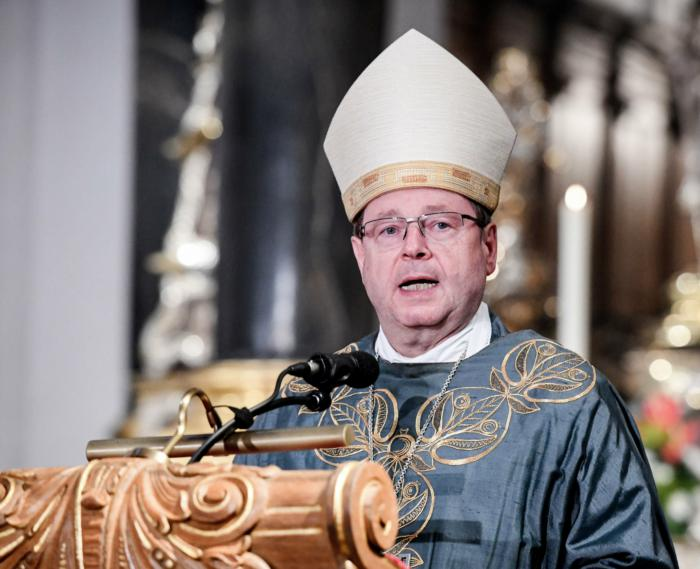German Church in critical situation according to head of Bishops' Conference
"A Critical Situation"
The spring conference of the Catholic bishops is dedicated to the Synodal Path reform process. It is entering its final phase - and the tension is great, admits Bishop Bätzing, head of the Bishops' Conference. The planned reform of the Catholic Church, the Synodal Path, is entering its final phase - and is a crucial test for the German bishops. In Dresden they came together for the spring plenary assembly of the bishops' conference to vote. "It is a serious critical situation, I say that very clearly, and it is of course also above our meeting here," said the chairman of the German Bishops' Conference, Georg Bätzing, on the Kick-off of the event. In the coming week, the last meeting on the synodal path is scheduled to take place in Frankfurt am Main and the reform course will be decided. The current meeting in Dresden also serves to coordinate with each other.
Opponents of reform increase pressure
The majority of the 65 bishops in Dresden are considered to be reform-oriented. But recently the Vatican and conservative fellow bishops from home and abroad had increased the pressure on the reformers. "We're not going the synodal path in peace," admitted Bätzing. However, in his opinion, there is no threat of a split: "Anyone who talks about a split is expecting something from it. I don't talk about it because nobody wants it." He was referring to allegations by conservative bishops that the German bishops were heading for a new schism with the synodal path.
Renewals sought
The Synodal Path, which has been running since 2019, is striving for renewal in four areas: the position of women, Catholic sexual morality, dealing with power and celibacy. But even if it should fail, according to Bätzing, one would not be left empty-handed. For example, church employment law has been reformed, and church employees should no longer be disadvantaged because of their sexual orientation.
The state should get more involved in dealing with abuse.
At the start of the Dresden meeting, Bätzing also commented on other topics. When dealing with the abuse scandal, for example, he would like the state to intervene more. State representatives are already sitting on the investigation commissions of the Dioceses. "I would wish that Parliament and our state would take on much more responsibility in this area," said Bätzing. "Also to make it clear: This is not just an issue for the Catholic Church. It is an extremely demanding, major issue for society as a whole."
Praise for Ukraine policy - but also caution
Bätzing praised the policy of the federal government in the Russian war against Ukraine. They support the decisions "that the federal government makes wisely, very cautiously, always in broad coordination with its partners in order to also support Ukraine with arms deliveries." The Church supports Ukraine's right to self-defense, but the arms deliveries are still in a dilemma: "It's a real ethical dilemma. And we can't resolve it." In total, the Catholic Church in Germany has so far collected 79 million euros in donations for Ukraine.










.jpeg)

Comments